Your search “Keep%20the%20Death%20Penalty%20Abolished%20fin%20the%20Philippfines%20%20%20%20%20%20%20%20%20%20/page/www.deathpenalty.org/downloads/RadeletDeterrenceStudy2009.pdf ”
Document(s)
Death Penalty in India – Annual Statistics Report 2021
By Project 39A, on 4 February 2022
2022
Academic report
India
More details See the document
Project 39A at the National Law University, Delhi published the sixth edition of the Death Penalty in India: Annual Statistics Report which provides an annual update on the use of the death penalty in India along with legislative and international developments on the issue. As on 31st December 2021, there were 488 prisoners on death row across India (a steep rise of nearly 21% from 2020), with Uttar Pradesh having the highest number at 86. This is the highest the death row population has been since 2004 as per the data from the Prison Statistics published by the National Crime Records Bureau.
- Document type Academic report
- Countries list India
Document(s)
Issues Impacting LGBTQ+ Prisoners
By Death Penalty Information Center, on 3 September 2024
2024
NGO report
Cruel, Inhuman and Degrading Treatment and Punishment
Fair Trial
United States
More details See the document
LGBTQ+ people, especially people of color and low income, experience high levels of policing and criminalization, leading to an overrepresentation of these individuals in the incarcerated population. A 2017 study from researchers at the University of California, Los Angeles School of Law, suggests that LGBTQ+ people are three times as likely to be incarcerated than the general population. Once incarcerated, LGBTQ+ people are often subjected to violence from correctional staff and fellow prisoners, as well denied medical care and access to mental health services.
- Document type NGO report
- Countries list United States
- Themes list Cruel, Inhuman and Degrading Treatment and Punishment / Fair Trial
Document(s)
Texas Death Penalty Developments in 2010: The Year in Review
By Texas Coalition to Abolish the Death Penalty, on 1 January 2010
2010
NGO report
More details See the document
Death sentences in Texas have dropped more than 70% since 2003, reaching a historic low in 2010. According to data compiled from news sources and the Texas Department of Criminal Justice, juries condemned eight new individuals to death in Texas in 2010. This is the lowest number of new death sentences since the U.S. Supreme Court upheld Texas’ revised death penalty statute in 1976. For preious annual reports on Texas please visit: http://tcadp.org/get-informed/reports/
- Document type NGO report
- Themes list Statistics,
Document(s)
Texas Death Penalty Developments in 2022: The Year in Review
By Texas Coalition to Abolish the Death Penalty, on 16 December 2022
2022
NGO report
United States
More details See the document
Use of the death penalty in Texas remained near historic low levels in 2022, with juries sentencing two people to death and the State executing five people. Three other scheduled executions were stayed by the Texas Court of Criminal Appeals (CCA). Overall, the eight execution dates set for 2022 were the fewest in Texas since 1996.
Despite their low number, the executions set and carried out in 2022 raise troubling issues about the fairness and utility of the death penalty. Four of the men put to death, including 78-year-old Carl Wayne Buntion, suffered from physical or mental impairments or histories of childhood trauma, while two maintained their innocence of the crimes for which they were convicted.
- Document type NGO report
- Countries list United States
Document(s)
Life After the Death Penalty: Implications for Retentionnist States
By American Bar Association / Death Penalty Information Center, on 1 January 2017
2017
Multimedia content
United States
More details See the document
- Document type Multimedia content
- Countries list United States
- Themes list Moratorium , Public debate, Death Penalty, Country/Regional profiles,
Document(s)
Battle Scars: Military Veterans and the Death Penalty
By Death Penalty Information Center / Richard C. Dieter, on 1 January 2015
2015
NGO report
More details See the document
Veterans with Post-Traumatic Stress Disorder (PTSD) who have committed heinous crimes present hard cases for the American system of justice. The violence that occasionally erupts into murder can easily overcome the special respect that is afforded most veterans. However, looking away and ignoring this issue serves neither veterans nor victims. PTSD has affected an enormous number of veterans returning from combat zones. Over 800,000 Vietnam veterans suffered from PTSD. At least 175,000 veterans of Operation Desert Storm were affected by “Gulf War Illness,” which has been linked to brain cancer and other mental deficits. Over 300,000 veterans from the Afghanistan and Iraq conflicts have PTSD. In one study, only about half had received treatment in the prior year.
- Document type NGO report
- Themes list Mental Illness,
Document(s)
Report of the General Secretary of the United Nations 2013
By United Nations, on 1 January 2013
2013
International law - United Nations
More details See the document
The report contains information on the question of the death penalty, and reports that the international community as a whole is moving towards the abolition of the death penalty in law or in practice. Nevertheless, a small number of States have continued to use the death penalty and in many instances, int ernational standards guaranteeing the protection of the rights of those facing the death penalty were not fully respected. Thereport also discusses the continued difficulties in gaining access to reliable information regarding executions, and issues related to the hum an rights of children of parents sentenced to the death penalty or executed.
- Document type International law - United Nations
- Themes list Death Penalty,
Document(s)
Pennsylvania capital post-conviction reversals and subsequent dispositions
By Death Penalty Information Center / Robert Brett Dunham, on 1 January 2018
2018
NGO report
More details See the document
In Pennsylvania, death-row prisoners whose convictions or death sentences are overturned in state or federal post-conviction appeals are almost never resentenced to death, a new Death Penalty Information Center study has revealed. Since Pennsylvania adopted its current death-penalty statute in September 1978, post-conviction courts have reversed prisoners’ capital convictions or death sentences in 170 cases. Defendants have faced capital retrials or resentencings in 137 of those cases, and 133 times—in more than 97% of the cases—they received non-capital dispositions ranging from life without parole to exoneration. Only four prisoners whose death sentences were reversed in post-conviction proceedings remain on death row
- Document type NGO report
- Themes list Death Penalty, Statistics, Country/Regional profiles,

Member(s)
The Rights Practice
on 30 April 2020
The Rights Practice works to promote and strengthen the protection of human rights. Our work is currently based in China in three programme areas: improving access to justice, strengthening public participation in decision making and promoting dignity of the person. We believe that the death penalty violates the right to life and is the ultimate […]
2020
United Kingdom

Member(s)
Themis Fund / The 8th Amendment Project
on 30 April 2020
Mandate and goals : Abolition of the death penalty in the United States. Kind of actions : Strategic coordination of advocates, litigators, funders and activists throughout the U.S. We work in partnership with all the major funders of the abolition movement in the U.S., and with almost all of the activists, lawyers, and political advocates […]
United States

Member(s)
Human Rights Commission of Pakistan
on 30 April 2020
Founded in 1986 and registered in 1987, the Human Rights Commission of Pakistan (HRCP) is an independent, democratic, nonpartisan organization committed to supporting human rights in the country. Over the last three decades, HRCP has worked for women’s empowerment and gender equality, the rights of religious minorities, rule of law and access to justice, democratic […]
Pakistan
Document(s)
Poster World Day 2004
By World Coalition against the death penalty , on 10 October 2004
2004
Campaigning
Trend Towards Abolition
esfrMore details Download [ pdf - 17 Ko ]
Poster world day against the death penalty 2004
- Document type Campaigning
- Themes list Trend Towards Abolition
- Available languages Poster Spanish 2004Affiche journée mondiale 2004

Member(s)
Equal Justice USA
on 30 April 2020
Equal Justice USA, founded in 1990, is a national organization that works to transform the justice system by promoting responses to violence that break cycles of trauma. We work at the intersection of criminal justice, public health, and racial justice to elevate healing over retribution, meet the needs of survivors, advance racial equity, and build […]
2020
United States

Member(s)
Citizens United for Rehabilitation of Errants (CURE)
on 30 April 2020
Citizens United for Rehabilitation of Errants (CURE) is a grassroots organization that was founded in Texas in 1972. It became a national organization in 1985. CURE believes that prisons should be used only for those who absolutely must be incarcerated and that those who are incarcerated should have all of the resources they need to […]
United States
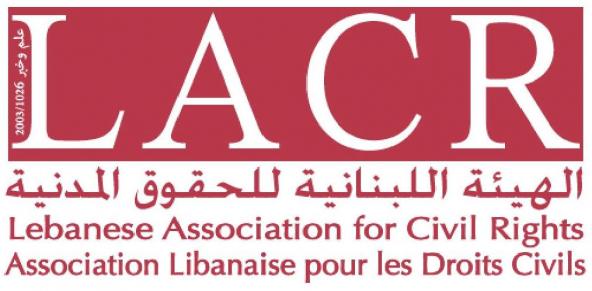
Member(s)
Lebanese Association for Civil Rights (LACR)
on 30 April 2020
The Lebanese Association for Civil Rights – LACR was founded in 2003 as a continuation of an action experienced since 1983 by two pioneers of the culture of non-violence in Lebanon and the Arab world: Walid Slaybi and Ogarit Younan. They are both writers, researchers, sociologists, pioneers of active training in Lebanon and grassroots activists. […]
Lebanon
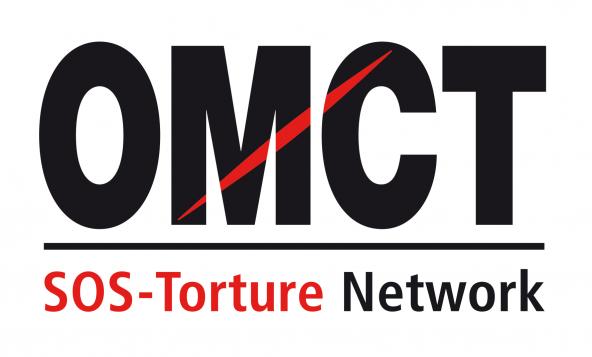
Member(s)
Organisation Mondiale Contre la Torture (OMCT)
on 30 April 2020
The OMCT is an independent, non-partisan, non-sectarian, Swiss international non-governmental organisation, founded in Geneva in 1985. It is today the leading global civil society network against torture including more than 200 local member organisations operating in over 90 countries around the world. Driven by the needs of its SOS-Torture Network members, the OMCT engages in […]
Switzerland

Member(s)
Japan Innocence and Death Penalty Research Center
on 30 April 2020
The JIADEP mission is to assist those who have been wrongfully incarcerated and sentenced to death, and to educate the public on the tragedies of criminal justice in Japan by lecturing, writing, and demonstrating.
Japan

Member(s)
Association Justice et Miséricorde (AJEM)
on 30 April 2020
The Association Justice and Mercy (AJEM) is a Lebanese nonprofit, nonpolitical and nonsectarian nongovernmental organization (NGO) created in 1996 at the initiative of a group of social workers. AJEM deals mainly with the right of prisoners in Lebanon, and more generally with human rights, the fight against torture and other cruel, inhuman and degrading treatment, […]
Lebanon
Member(s)
Catholic Commission for Social Justice (CCSJ)
on 30 April 2020
Mandate and goals : To be a fearless united voice challenging injustice, awakening social consciousness and fostering integral development. We strive for this through: Social Justice Education and Advocacy; Promoting people-centred development, and; Working for the transformation of inequitable structures and systems Kind of actions : Promote and create opportunities, structures and programmes to achieve […]
Trinidad and Tobago
Document(s)
Guidelines on human rights education, for secondary school systems
By Organization for Security and Co-operation in Europe (OSCE), on 1 January 2011
2011
Working with...
More details See the document
These guidelines, which focus on human rights education in secondary schools, aim to support systemic and effective human rights learning for all young people.
- Document type Working with...
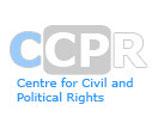
Member(s)
Centre for Civil and Political Rights (CCPR)
on 30 April 2020
The Centre for Civil and Political Rights (CCPR) envisions the full realisation of the rights proclaimed in the International Covenant on Civil and Political Rights (ICCPR) and its two Optional Protocols at the universal level. This includes the Second Optional Protocol to the ICCPR, which abolishes the death penalty. The CCPR aims to fulfil that […]
2020
Switzerland

Member(s)
New Hampshire Coalition to Abolish the Death Penalty (NHCADP)
on 30 April 2020
New Hampshire Coalition to Abolish the Death Penalty (NHCADP) ‘s mandate and goals are to abolish the Death Penalty in the State of New Hamphire and the United States. To do so, they organise the following actions: direct lobbying of legislators, letter writing campaigns to legislators and media, vigils and other public demonstrations, public information […]
United States
Document(s)
Legislators’ Opinions on the Death Penalty in Taiwan
on 24 March 2022
2022
NGO report
Public Opinion
Taiwan
zh-hantMore details See the document
In 2021, The Death Penalty Project and the Taiwan Alliance to End the Death Penalty (TAEDP) commissioned Professor Carolyn Hoyle at the University of Oxford and Professor Shiow-duan Hawang at Soochow University, Taipei to carry out a study exploring Taiwanese legislators’ attitudes towards capital punishment.
The study reveals that the majority of Taiwan’s legislators would like to see the death penalty abolished. The risk of wrongful convictions, the abuse of human rights and a recognition that the death penalty has no unique deterrent effect, were the primary reasons cited for supporting abolition. Additionally, a majority of legislators interviewed expressed fairly low levels of trust in the Taiwanese criminal justice system, with doubts raised over its ability to offer adequate safeguards to individuals facing capital trials.
Key findings:
– 61% of legislators interviewed are in favour of abolishing the death penalty
– 39% of legislators interviewed are in favour of retaining the death penalty, but only one legislator was strongly in favour
– 71% of retentionists and 65% of abolitionists asserted that wrongful convictions ‘sometimes’ occurred
– Only 11% of legislators interviewed thought that wrongful convictions ‘rarely’ occur
– All legislators interviewed expressed a preference for social justice measures, such as poverty reduction, over increased executions when asked to rank a range of policies aimed at reducing violent crime
- Document type NGO report
- Countries list Taiwan
- Themes list Public Opinion
- Available languages 台灣立法委員對死刑 之意見調查
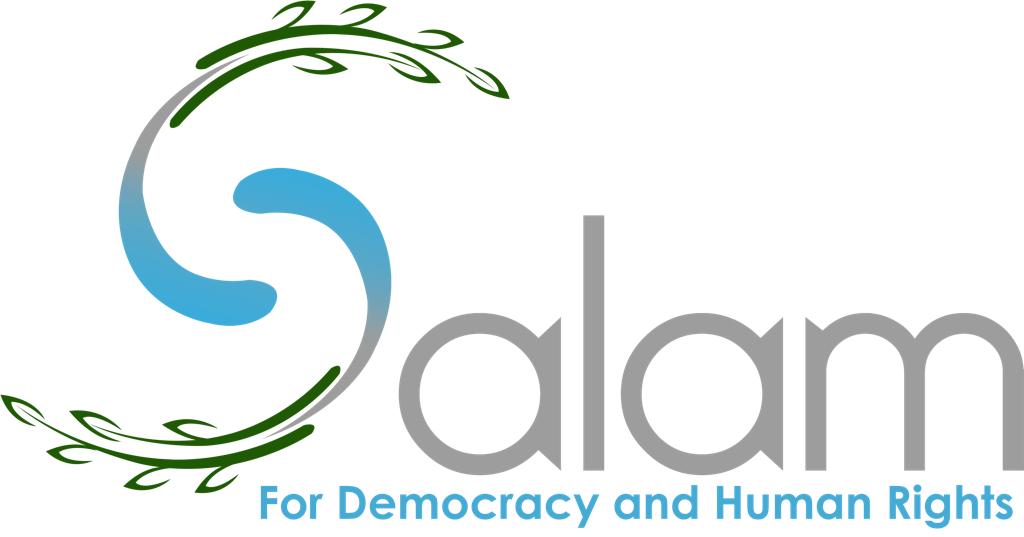
Member(s)
SALAM for Democracy and Human Rights (SALAM DHR)
on 30 April 2021
SALAM for Democracy and Human Rights (SALAM DHR) is an NGO that endeavors to preserve universal principles of dignity and respect by shielding democracy and human rights. SALAM DHR conducts monitoring and analysis, produces reports, develops recommendations on policy and legislation, organizes advocacy campaigns, conducts trainings, and builds effective coalitions. SALAM DHR is actively involved […]
2021
Bahrain
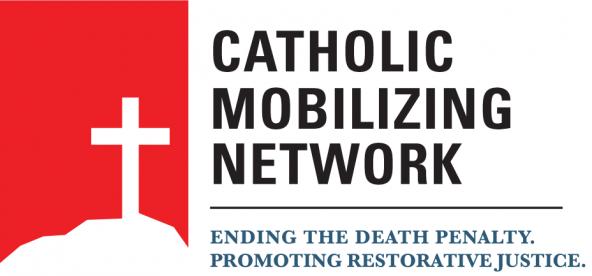
Member(s)
Catholic Mobilizing Network
on 30 April 2020
Catholic Mobilizing Network is a national organization working in close collaboration with the United States Conference of Catholic Bishops (USCCB) and living the mission of the Congregation of St. Joseph. Catholic Mobilizing Network (CMN) proclaims the Church’s pro-life teaching and prepares Catholics for informed involvement in the public debate to end the death penalty and promote […]
2020
United States
Document(s)
Guidelines on human rights education, for law enforcement officials
By Organization for Security and Co-operation in Europe (OSCE), on 1 January 2011
2011
Working with...
More details See the document
These guidelines aim to support systemic and effective human rights education for police and other law enforcement personnel. They were prepared on the basis of broad consultations involving police trainers, university lecturers, national human rights institutions and individuals involved in the design and delivery of educational curricula for law enforcement officials.
- Document type Working with...
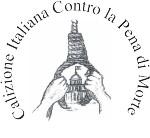
Member(s)
Coalizione italiana contro la pena di morte
on 30 April 2020
The Italian Coalition to Abolish the Death Penalty (ICADP) was established to form a network between both Italian and foreign groups, associations, movements, and individuals that oppose capital punishment, and to coordinate their work and efforts. The ICADP holds talks about the death penalty around the world, spreads information and promotes campaigns. It is especially […]
2020
Italy
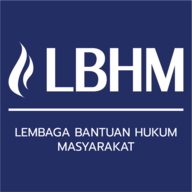
Member(s)
LBH Masyarakat (Community Legal Aid Institute)
on 5 May 2021
LBH Masyarakat (Community Legal Aid Institute) is a collective of individuals who believe that every human has potential to actively participate in legal aid, to uphold justice, and to contribute to the protection of human rights. LBH Masyarakat believes in equality, non-discrimination, and acknowledgement of inherent human dignity. LBH Masyarakat defends the right of every […]
2021
Indonesia
Document(s)
Bahrain The Death Penalty Joint Stakeholder Report for the United Nations Universal Periodic Review
By The Advocates for Human Rights, on 1 January 2017
2017
NGO report
More details See the document
- Document type NGO report
- Themes list International law, Member organizations, Death Penalty,
Document(s)
Voting record – Draft resolution A/C.3/75/L.41 as amended, Moratorium on the use of the death penalty
By United Nations General Assembly, on 18 November 2020
2020
International law - United Nations
zh-hantMore details See the document
Document(s)
USA: Darkness visible in the Sunshine State: The death penalty in Florida
By Amnesty International, on 1 January 2018
2018
NGO report
More details See the document
Florida promotes itself as a destination for tourists and a hub for trade. It is less well-known as a diehard proponent of a cruel policy discarded by much of the world. In 2016, the US Supreme Court ruled Florida’s capital sentencing scheme unconstitutional. Florida’s response has added another layer of arbitrariness to its death penalty. This report focusses on the state’s use of the death penalty against people who were young adults at the time of the crime and/or who have mental or intellectual disabilities. The Sunshine State should end its use of the ultimate cruel, inhuman and degrading punishment.
- Document type NGO report
- Themes list Public opinion, Discrimination, Country/Regional profiles,
Document(s)
Indonesian : Indonesia: Urusan tentang pidana mati
By Amnesty International, on 8 September 2020
2020
NGO report
Indonesia
enMore details See the document
Amnesty International juga prihatin akan adanya seruan untuk memperluas jenis masalah kejahatan yang dapat dijatuhi pidana mati. Saat ini pidana mati dapat dijatuhkan pada pelaku kejahatan yang berhubungan dengan masalah pembunuhan; kejahatan menentang keamanan negara; pembunuhan Presiden atau Wakil Presiden dan kejahatan yang berhubungan dengan narkoba. Berlawanan dengan kecenderungan internasional yang ingin menghapuskan atau mengurangi jumlah kasus kejahatan yang dapat dijatuhi pidana mati, dua undang-undang yang berhubungan dengan kejahatan terhadap kemanusiaan dan terorisme yang telah diadopsi selama empat tahun terakhir mencantumkan pidana mati atas beberapa kejahatan. Pada tahun-tahun belakangan ini juga telah ada seruan untuk menjatuhkan pidana mati bagi pelaku penebangan kayu ilegal dan pelaku korupsi.
- Document type NGO report
- Countries list Indonesia
- Themes list Networks, Statistics, Country/Regional profiles,
- Available languages Indonesia: A briefing on the death penalty
Document(s)
Death Row USA – Spring 2020
By NAACP Legal Defense and Educational Fund, Inc. / Deborah Fins, on 8 September 2020
NGO report
United States
More details See the document
Spring 2020 edition of Death Row USA, on the situation of the death penalty in the USA as of April 2020
- Document type NGO report
- Countries list United States
- Themes list Statistics,
Document(s)
Compounded Violence: Domestic Abuse and the Mandatory Death Penalty in Ghana and Sierra Leone
By Anjuli Peters / University of Oxford, on 1 January 2019
2019
Arguments against the death penalty
More details See the document
This paper applies a gendered perspective to women sentenced to a mandatory death penalty in the West African countries of Ghana and Sierra Leone. At present, there are six women on death row in Ghana and two women on death row in Sierra Leone. All eight women are sentenced to mandatory death for murder. However, interviews with the women on death row suggest that their offenses do not meet the threshold of ‘most serious crimes.’ Instead, many are convicted for acts committed in retaliation following violence against them.
- Document type Arguments against the death penalty
- Themes list Women,
Document(s)
Japanese : 今日が最期の日?
By Amnesty International, on 8 September 2020
2020
NGO report
Japan
enesMore details See the document
日本では、死刑執行の予定日に刑務所の外で監視行動などがおこなわれることはない。処刑がおこなわれるかどうかは当局だけが知るところだからである。また処刑は通常、国会が閉会中で処刑の問題を国会で協議することができないような時期におこなわれる。臼井日出男元法相によれば、「死刑についての論議を大々的にする」機会を野党議員に与えないために、このような方針がとられているということである。死刑の執行に関して唯一明らかにされているのは、定期的に法務省が出す統計情報である。執行された人の名前は明らかにはされず、家族が公開しないかぎり知ることはできない。法務省はこうした秘密主義は, 死刑囚の家族を、身内が処刑されたと知られないよう、保護するためだとしている。
- Document type NGO report
- Countries list Japan
- Themes list Transparency, Country/Regional profiles,
- Available languages Japan: "Will this day be my last?" The death penalty in Japan“¿Será éste mi último día?” La pena de muerte en Japón
Document(s)
Faith in Action
By Amnesty International - USA, on 1 January 2006
2006
Campaigning
More details See the document
Using faith to combat the death penalty: This document has sermons, prayers and services, essays, views on the death penalty, resources for discussion and action, resources for next steps.
- Document type Campaigning
- Themes list Networks,
Document(s)
Portuguese : Homofobia do Estado: Uma pesquisa mundial sobre legislações que proíbem relações sexuais consensuais entre adultos do mesmo sexo
By Daniel Ottosson / International Lesbian, Gay, Bisexual, Trans and Intersex Association (ILGA), on 8 September 2020
2020
NGO report
enfresMore details See the document
O propósito deste relatório anual sobre a Homofobia do Estado, expresso desde sua primeira edição, em 2007, é revelar e denunciar os países que, no século 21, negam às pessoas LGBTI os direitos humanos mais fundamentais: o direito à vida e à liberdade, na esperança de que, a cada ano, mais e mais países abandonem a ―comunidade‖ dos países homofóbicos.Em comparação com o relatório do ano passado, em que relacionamos os 77 países que perseguiam as pessoas com base em sua orientação sexual, no presente relatório você encontrará ‗apenas‖ 76 países nesta mesma lista, incluindo os cinco ―infames‖,que condenam as pessoas à morte com base em sua orientação sexual: Irã, Mauritânia, Arábia Saudita, Sudão e Iêmen (e algumas regiões da Nigéria e da Somália). Um país a menos, se comparado ao relatório de 2009, pode parecer um avanço insignificante, até nos darmos conta de que ele compreende 1/6 da população humana.
- Document type NGO report
- Themes list Homosexuality,
- Available languages State-sponsored Homophobia: A world survey of laws prohibiting same sex activity between consenting adultsHomophobie d'État: Une enquête mondiale sur les lois qui interdisent la sexualité entre adultes consentants de même sexeHomofobia de Estado: Un informe mundial sobre las leyes que prohiben la actividad homosexual con consentimiento entre personas adultas
Document(s)
DEATH ROW USA. Summer 2019
By NAACP Legal Defense and Educational Fund, Inc., on 1 January 2019
2019
NGO report
More details See the document
This report provides death row statistics and an update on executions in the US as of July 2019.
- Document type NGO report
- Themes list Statistics, Country/Regional profiles,
Document(s)
Casebook of Forensic Psychiatric Practice in Capital Cases
By The Death Penalty Project / Marc Lyall, on 1 January 2018
2018
Working with...
More details See the document
The Death Penalty Project and Forensic Psychiatry Chambers have released two new publications, together providing an authoritative guide on the application of mental health law in capital cases. The resources respond to the knowledge that, in many countries that retain the death penalty, mental health issues are not being sufficiently addressed by the courts, leading to miscarriages of justice and putting vulnerable individuals at risk.This Casebook uses real-life examples to address ethical and professional questions and explore the application of legal principles.
- Document type Working with...
- Themes list Death Penalty,
Document(s)
Korean : 사형제도 극단적 형벌
By Amnesty International, on 8 September 2020
2020
Academic report
enfresMore details See the document
과연 사형제도가 범죄를 억제할까?; 정치적 도구로 사용되는 사형; 비밀리에 이뤄지는 사형집행; 생명을 생명으로 갚아라?; 인도적인’ 살인 – 과연 ‘인도적인’ 사형집행 방식이 존재하는가?; 국제사회는 사형에 반대한다 – 전세계적인 사형제도 폐지를 향해; 국가에 의해 살해당한 사람들
- Document type Academic report
- Themes list Networks,
- Available languages The Death Penalty: The Ultimate PunishmentLa Peine de Mort: Le Châtiment SuprêmeLa Pena de Muerte: El Castigo Máximp
Document(s)
Handbook of Forensic Psychiatric Practice in Capital Cases
By The Death Penalty Project / Nigel Eastman / Richard Latham / Marc Lyall / Sanya Krljes, on 1 January 2018
2018
Working with...
More details See the document
The Death Penalty Project and Forensic Psychiatry Chambers have released two new publications, together providing an authoritative guide on the application of mental health law in capital cases. The resources respond to the knowledge that, in many countries that retain the death penalty, mental health issues are not being sufficiently addressed by the courts, leading to miscarriages of justice and putting vulnerable individuals at risk.This Handbook guides the reader through the role of the forensic psychiatrist in criminal proceedings and key principles of mental health law.
- Document type Working with...
- Themes list Death Penalty,
Document(s)
Making up for Lost Time : What the Wrongfully Convicted endure and how to Provide Fair Compensation
By The Innocence Project, on 1 January 2010
2010
Working with...
More details See the document
It’s an accepted principle of fairness in our society to compensate citizens who, through no fault of their own, have suffered losses. When a person’s land has been seized for public use, they receive adequate repayment. Crime victims and their families receive financial compensation in all 50 states. Yet, strangely, the wrongfully imprisoned, who lose property, jobs, freedom, reputation, family, friends and more do not receive compensation in 23 states of the nation. These recommendations for state compensation laws have been developed by the Innocence Project after years of working with exonerees and their families, legislators, social workers and psychologists.
- Document type Working with...
- Themes list Networks,
Document(s)
Barbados: Death Penalty Stakeholder Report for the Universal Periodic Review
By The Advocates for Human Rights, on 1 January 2017
2017
NGO report
More details See the document
- Document type NGO report
- Themes list International law, Member organizations, Death Penalty,
Document(s)
Death Sentences and Executions in 2017
By Amnesty International, on 1 January 2018
2018
NGO report
arfarufresMore details See the document
Amnesty International published its international global review of the death penalty on Tuesday, 12th April 2018.At least 993 executions in 23 countries in 2017 were recorded, down by 4% from 2016 (1,032 executions) and 39% from 2015 (when the organization reported 1,634 executions, the highest number since 1989). China remained the world’s top executioner, but excluding China, 84% of all reported executions took place in just four countries – Iran, Saudi Arabia, Iraq and Pakistan.
- Document type NGO report
- Themes list Trend Towards Abolition, Death Penalty, Statistics,
- Available languages أحكام الإعدام وما نفذ من أحكام في 2017: التقرير العالمي لمنظمة العفو الدوليةمار احکام مرگ و اعدام در سال 2017Смертные приговоры и казни 2017Condamnations à mort et exécutions en 2017Condenas a muerte y ejecutiones 2017
Document(s)
On Trial: The Implementation of Pakistan’s Blasphemy Laws
By International Commission of Jurists , on 8 September 2020
2020
NGO report
Pakistan
More details See the document
- Document type NGO report
- Countries list Pakistan
- Themes list Legal Representation, Networks, Death Penalty, Country/Regional profiles,
Document(s)
People’s Republic of China: Executed “according to law”? The death penalty in China
By Amnesty International, on 8 September 2020
NGO report
China
frMore details See the document
This document describes the process that someone suspected of committing a capital crime goes through under the Chinese criminal justice system, from detention through to execution. This process will be described using examples of cases researched by Amnesty International, and others monitored in the official press in China. As shown, there is potential for the violation of human rights at every stage of the criminal justice process leading to execution.
- Document type NGO report
- Countries list China
- Themes list Statistics, Country/Regional profiles,
- Available languages République Populaire de Chine: Des exécutions << conformes au droit >> ? La peine de mort en Chine
Document(s)
How States abolish the death penalty 2nd Edition
By International Commission Against the Death Penalty, on 1 January 2018
2018
International law - United Nations
More details See the document
This publication briefly describes the experiences of 26 countries and 3 USA states as they moved towards abolition of the death penalty. These Case Studies are drawn from 27 countries from all regions of the world. This publication is an updated and enlarged version of ICDP’s 2013 publication How States Abolish the Death Penalty.
- Document type International law - United Nations
- Themes list Trend Towards Abolition, Sentencing Alternatives, Death Penalty,
Document(s)
Death sentences and executions 2019
on 1 January 2020
2020
NGO report
aresfafrruMore details See the document
Document(s)
Coping with Innocence after Death Row
By Kimberly J Cook / Saundra D Westervelt / Contexts, on 1 January 2008
2008
Working with...
More details See the document
The enduring images of exonerees are of vindicated individuals reunited with family and friends in a moment of happiness and relief, tearful men embraced by supporters who have long fought for their release.We think of these moments as conclusions, but really they’re the start of a new story, one that social science is beginning to tell about how exonerees are greeted by their communities, their homes, and their families, and how they cope with the injustice of their confinement and rebuild their lives on the outside.
- Document type Working with...
- Themes list Networks,
Document(s)
Global Prison Trends 2018
By Penal Reform International, on 1 January 2018
2018
NGO report
More details See the document
- Document type NGO report
- Themes list Trend Towards Abolition, Sentencing Alternatives, Death Penalty, Statistics,
Document(s)
The Death Penalty Project: 2018 Report
By The Death Penalty Project, on 1 January 2019
2019
NGO report
More details See the document
The Death Penalty Project publishes its 2018 annual report. It provides testimonies, figures and a look on the actions accomplished in favour of the human rights worlwide.
- Document type NGO report
- Themes list Right to life, Legal Representation, Death Penalty,
Document(s)
Iran 34th Session of the Working Group on the UPR: Death Penalty
By Ensemble contre la peine de mort (ECPM) / Iran Human Rights (IHR) / World Coalition Against the Death Penalty / Abdorrahman Boroumand Foundation for the Promotion of Human Rights and Democracy in Iran / Association for Human Rights in Kurdistan of Iran-Geneva (KMMK-G) / Impact Iran , on 1 January 2019
NGO report
More details See the document
This joint stakeholder report aims to provide up-to-date and useful information to understand the reality of the death penalty in the Islamic Republic of Iran, in view of the next review of Iran by the Working Group on the Universal Periodic Review (UPR) in November 2019. The substantive information was gathered from news, reports and testimonies from various local sources. Iran is one of the leading death-sentencing and executing states in the world. Despite some recent steps towards limiting the scope of the death penalty for drug-related crimes, Iran’s use of capital punishment remains non-transparent, arbitrary, and worrisomely broad in scope.
- Document type NGO report
- Themes list International law, Country/Regional profiles,
Document(s)
Compounded Violence: Domestic Abuse and the Mandatory Death Penalty in Ghana and Sierra Leone
By Anjuli Peters / University of Oxford, on 1 January 2019
Arguments against the death penalty
More details See the document
This paper applies a gendered perspective to women sentenced to a mandatory death penalty in the West African countries of Ghana and Sierra Leone. At present, there are six women on death row in Ghana and two women on death row in Sierra Leone. All eight women are sentenced to mandatory death for murder. However, interviews with the women on death row suggest that their offenses do not meet the threshold of ‘most serious crimes.’ Instead, many are convicted for acts committed in retaliation following violence against them.
- Document type Arguments against the death penalty
- Themes list Women,
Document(s)
The Death Penalty Resource Guide
By Amnesty International - USA, on 1 January 2011
2011
Campaigning
More details See the document
Since 1976, when the U.S. Supreme Court ruled that executions could resume after a four year moratorium, more than 1,050 people have been executed in the United States. Approximately 3,370 men and women remain on death row throughoutthe United States. This is a teaching guide on the death penalty in the United States after 1976.
- Document type Campaigning
- Themes list Networks,
Document(s)
For or against abolition of the death penalty: Evidence from Taiwan
By Taiwan Alliance to End the Death Penalty / The Death Penalty Project, on 8 September 2020
2020
NGO report
More details See the document
- Document type NGO report
- Themes list Public opinion, Death Penalty,
Document(s)
English-speaking Carribbean: time to make the death penalty history
By Amnesty International, on 1 January 2018
2018
NGO report
frMore details See the document
Ten years ago, on 19 December 2008, the authorities of Saint Kitts and Nevis carried out what was to become the last execution in the Americas, outside the USA. This anniversary, which follows on from the observance on 2 November of 25 years since a key judicial decision that puta brake on the implementation of death sentences in the region, offers an opportunity for reflection on the present state of the death penalty in the English-speaking Caribbean. Trends on the use of this punishment point to the inevitability of its abolition. On the occasion of this anniversary, Amnesty International renews its call on governments in the English-speaking Caribbean to take prompt steps towards consigning the death penalty to history once and for all.
- Document type NGO report
- Themes list Death Penalty, Country/Regional profiles,
- Available languages Caraïbes anglophones. Il est temps de reléguer la peine de mort dans les livres d'Histoire
Document(s)
Dehumanized: The Prison Conditions of People Sentenced to Death in Indonesia
By Ensemble contre la peine de mort (ECPM) / Kontras / Carole Berrih, on 1 January 2019
2019
NGO report
enMore details See the document
Although much research has been carried out into the administration of justice in death penalty cases in Indonesia, there is little research into the conditions of detention of the men and women sentenced to death in that country. This study is one of the first to focus on the conditions of detention of death row prisoners in Indonesia. This report aims to give a voice to the men and women on death row in Indonesia and to their families, while documenting their situation.
- Document type NGO report
- Themes list Death Row Conditions, Country/Regional profiles,
- Available languages Indonesian : Tidak Manusiawi: Kondisi Lembaga Pemasyarakatan Bagi Terpidana Mati di Indonesia
Document(s)
How Families of Murder Victims Feel Following the Execution of Their Loved One’s Murderer: A Content Analysis of Newspaper Reports of Executions from 2006-2011
By Journal of Qualitative Criminal Justice and Criminology, on 1 January 2013
2013
Working with...
More details See the document
By Corey Burton and Richard Tewksbury
- Document type Working with...
- Themes list Public debate, Murder Victims' Families, Death Penalty, Country/Regional profiles,
Document(s)
Handbook of Forensic Psychiatric Practice in Capital Cases
By Death Penalty Project, on 1 January 2018
2018
Working with...
More details See the document
- Document type Working with...
- Themes list Mental Illness, Public debate, Death Penalty,
Document(s)
New opinion study shows Zimbabwean public ready to accept death penalty abolition
By Death Penalty Project, on 1 January 2018
NGO report
More details See the document
Today, The Death Penalty Project, in partnership with Veritas, launches “12 Years Without an Execution: Is Zimbabwe Ready for Abolition?” a national public opinion study, providing for the first time comprehensive and contextualised data on public attitudes towards the death penalty in Zimbabwe – a country that has not carried out any executions in over 12 years.
- Document type NGO report
- Themes list Public opinion, Public debate, Death Penalty, Country/Regional profiles,
Document(s)
PROCEEDINGS – 7th World Congress Against the Death Penalty
By Ensemble contre la peine de mort (ECPM), on 8 September 2020
2020
Multimedia content
More details See the document
Six months after the 7th World Congress against the Death Penalty, ECPM is proud to announce the publication of the Proceedings of the Brussels Congress. This unpublished, documented and illustrated book reports on the rich debates held during the Congress and discusses the new associative and political dynamics promoted in this context.
- Document type Multimedia content
- Themes list Member organizations, World Coalition Against the Death Penalty, Country/Regional profiles,
Document(s)
Unsafe convictions in capital cases in Taiwan
By Taiwan Alliance to End the Death Penalty / The Death Penalty Project, on 1 January 2019
2019
NGO report
zh-hantMore details See the document
- Document type NGO report
- Themes list Innocence, Death Penalty, Country/Regional profiles,
- Available languages 鐵證不如山-台灣死刑案件判決分析報告
Document(s)
Joint Letter Calling on the HRC to Renew the Mandate of the Special Rapporteur on Human Rights in Iran
By Human Rights Watch / Impact Iran , on 1 January 2018
2018
Multimedia content
Iran (Islamic Republic of)
More details See the document
In this joint letter many Iranian and international human rights organizations, urge the governments they called to support the renewal of the mandate of the Special Rapporteur on human rights in the Islamic Republic of Iran, during the 37th session of the UN Human Rights Council.
- Document type Multimedia content
- Countries list Iran (Islamic Republic of)
- Themes list Cruel, Inhuman and Degrading Treatment and Punishment, Discrimination,
Document(s)
The Bahamas: Death Penalty Joint Stakeholder Report for the United Nations Universal Periodic Review
By The Advocates for Human Rights, on 1 January 2017
2017
NGO report
More details See the document
- Document type NGO report
- Themes list International law, Member organizations, Death Penalty,
Document(s)
Death Penalty: Majority of States Continue to Support UN Call for Moratorium on Executions at Committee Vote
on 1 January 2020
2020
NGO report
Antigua and Barbuda
Congo
Democratic Republic of the Congo
Djibouti
Dominica
Eswatini
Guinea
Lebanon
Libya
Nauru
Niger
Pakistan
Philippines
Republic of Korea
Sierra Leone
Solomon Islands
South Sudan
Tonga
Uganda
Zimbabwe
More details See the document
- Document type NGO report
- Countries list Antigua and Barbuda / Congo / Democratic Republic of the Congo / Djibouti / Dominica / Eswatini / Guinea / Lebanon / Libya / Nauru / Niger / Pakistan / Philippines / Republic of Korea / Sierra Leone / Solomon Islands / South Sudan / Tonga / Uganda / Zimbabwe
Document(s)
Report No. 211/20. Case 13.570. Report on admissibility and mertis. Lezmond C. Mitchell. United States of America
By Inter-american Commission on Human Rights, on 24 August 2020
2020
Regional body report
esMore details See the document
- Document type Regional body report
- Available languages Informe No. 211/20. Caso 13.750. Informe sobre admisibilidad y fondo. Lezmond C. Mitchell. Estados Unidos de America
Document(s)
Paralegals in Rwanda A Case Study by Penal Reform International
By Penal Reform International, on 1 January 2002
2002
Working with...
More details See the document
Paralegals are becoming an increasingly important part of the criminal justice system in developing countries. By ensuring more people are aware of their rights within the prison system and can therefore represent themselves and follow up on their cases, paralegals contribute towards a reduction in numbers in pre-trial detention.
- Document type Working with...
- Themes list Country/Regional profiles,
Document(s)
Investigating Attitudes to the Death Penalty in Indonesia in bahasa Indonesia
By Universitas Indonesia LBH Masyarakat Universitas Oxford The Death Penalty Project, on 10 August 2021
2021
NGO report
Drug Offenses
Indonesia
Public Opinion
More details See the document
Pandangan Para Pembentuk Opini tentang Hukuman Mati di Indonesia
- Document type NGO report
- Countries list Indonesia
- Themes list Drug Offenses / Public Opinion
Document(s)
Терроризм в Казахстане Смертная казнь не решение проблемы
By Penal Reform International, on 1 January 2013
2013
NGO report
enMore details See the document
- Document type NGO report
- Available languages Counter terrorism in Kazakhstan: why the death penalty is no solution
Document(s)
Fighting for clients’ lives: the impact of the death penalty on defence lawyers
By Susannah Sheffer / Penal Reform International, on 1 January 2014
2014
Working with...
More details See the document
How are lawyers affected by defending death penalty cases, where failure means execution? And how do they respond when their clients are killed?This briefing paper, written by Susannah Sheffer and drawing on her book Fighting for their lives, showcases the voices of the lawyers themselves to demonstrate the profound and long-lasting impacts that the death penalty can have on those indirectly affected by it.
- Document type Working with...
- Themes list Legal Representation,
Document(s)
The Death Penlty In 2011: Year End Report
By Death Penalty Information Center / Richard C. Dieter, on 1 January 2011
2011
International law - Regional body
More details See the document
The number of new death sentences dropped dramatically in 2011, falling below 100 for the first time in the modern era of capital punishment. Executions also continued decline, while developments in a variety of states illustrated the growing discomfort that many Americans have with the death penalty.
- Document type International law - Regional body
- Themes list Trend Towards Abolition,
Document(s)
كار با برنامه حقوق بشر سازمان ملل متحد کتابی برای راهنمایی جامعه مدني
By United Nations / Office of the United Nations High Commissioner for Human Rights, on 1 January 2008
2008
Arguments against the death penalty
enrufrzh-hantesMore details See the document
اين كتاب راهنما خطاب به همه فعالان جامعه مدني، ازجمله سازمان هاي غيردولتي، اما نه فقط آنها، توضيح مي دهد چگونه جامعه مدني مي تواند با نهادها وسازوكارهاي گوناگون حقوق بشرسازمان ملل همكاري كند
- Document type Arguments against the death penalty
- Themes list Networks,
- Available languages Working with the United Nations Human Rights Programme A Handbook for Civil SocietyКак работать по Программе ООН в области прав человека Справочник для гражданского обществаTravailler avec le programme des Nations Unies pour les droits de l’homme: un manuel pour la société civile参与联合国人权事务 民间社会手册Trabajando con el Programa de las Naciones Unidas en el ámbito de los Derechos Humanos Un manual para la sociedad civil
Document(s)
Working with the United Nations Human Rights Programme A Handbook for Civil Society
By United Nations / Office of the United Nations High Commissioner for Human Rights, on 1 January 2008
United Nations report
enrufrzh-hantesMore details See the document
Speaking to all civil society actors, including but not only non-governmental organizations (NGOs), the Handbook explains how civil society can engage with various United Nations human rights bodies and mechanisms.
- Document type United Nations report
- Themes list Networks,
- Available languages كار با برنامه حقوق بشر سازمان ملل متحد کتابی برای راهنمایی جامعه مدنيКак работать по Программе ООН в области прав человека Справочник для гражданского обществаTravailler avec le programme des Nations Unies pour les droits de l’homme: un manuel pour la société civile参与联合国人权事务 民间社会手册Trabajando con el Programa de las Naciones Unidas en el ámbito de los Derechos Humanos Un manual para la sociedad civil
Document(s)
Reporting on the death penalty: training resource for journalists
By Penal Reform International, on 1 January 2011
2011
NGO report
More details See the document
The aim of this resource is to build and strengthen the knowledge and raise awareness of journalists on how to report on the death penalty and alternative sanctions. This training resource has been developed in conjunction with PRI’s partner, Inter Press Services (IPS).
- Document type NGO report
- Themes list Public opinion, Networks,
Document(s)
The Kentucky Death Penalty Assessment Report: Evaluating fairness and accuracy in state death panlty systems. An Analysis of Kentucky’s Death Penalty Laws, Procedures, and Practices
By American Bar Association, on 1 January 2011
NGO report
More details See the document
This report examines how state death penalty systems are functioning in design and practice and are intended to serve as the bases from which states can launch comprehensive self-examinations, impose reforms, or in some cases, impose moratoria.
- Document type NGO report
Document(s)
California’s Death Penalty is Dead
By Natasha Minsker / American Civil Liberties Union / Miriam Gerace / Ana Zamora, on 1 January 2011
NGO report
More details See the document
California’s death penalty is dead. Prosecutors, legislators and taxpayers are turning to permanent imprisonment with no chance of parole as evidence grows that the system is costly, risky, and dangerous to public safety.
- Document type NGO report
- Themes list Trend Towards Abolition,
Document(s)
Counter terrorism in Kazakhstan: why the death penalty is no solution
By Penal Reform International, on 1 January 2013
2013
NGO report
enMore details See the document
This report focuses on the death penalty for terrorism related offences, an issue that has exercised many countries. It looks at evolving standards and practice internationally and considers how Kazakhstan can meet its human rights obligations while countering terrorism and maintaining the security of its people.
- Document type NGO report
- Themes list Terrorism,
- Available languages Терроризм в Казахстане Смертная казнь не решение проблемы
Document(s)
Crackdown on China’s human rights lawyers deepens
By Amnesty International, on 1 January 2011
2011
NGO report
More details See the document
This report updates Amnesty International’s Breaking the law: Crackdown on human rights lawyers and legal activists in China (ASA 17/042/2009) published in 2009. It makes little mention of death penalty but it is an excellent source on the situation of human rights lawyers in China.
- Document type NGO report
Document(s)
Irreversible Error: Recommended Reforms for Preventing and Correcting Errors in the Administration of Capital Punishment
By The Constitution Project, on 1 January 2014
2014
NGO report
More details See the document
The Committee also offers a host of other recommendations to prevent and correct wrongfulconvictions. These include recommendations regarding the preservation, testing andpresentation of forensic evidence; the creation of statutory remedies for wrongful convictionsand the implementation of procedures for the systemic review to help avoid future errors; thevideotaping of custodial interrogations – where practical – in order to avoid the documentedproblem of false and otherwise inaccurate confessions; the adoption of best practices foreyewitness identifications; the effective implementation of prosecutors’ constitutionalobligation to disclose exculpatory evidence; and enforcement of the Vienna Convention onConsular Relations.
- Document type NGO report
- Themes list Innocence,
Document(s)
Death sentences and executions in 2011
By Amnesty International, on 1 January 2012
2012
NGO report
enenfafrzh-hantesMore details See the document
Developments on the use of the death penalty in 2011 confirmed the global trend towards abolition. The number of countries that were known to have carried out death sentences decreased compared to the previous year, and overall, progress was recorded in all regions of the world. In this report, Amnesty International analyses some of the key developments in the worldwide application of the death penalty, citing figures it has gathered on the number of death sentences handed down and executions carried out during the year.
- Document type NGO report
- Themes list Statistics,
- Available languages Thai : สถานการณ์โทษประหาร และการประหารชีวิต ในปี 2554Korean : 연례사형현황 보고서 2011 사형선고와 사형집행اعدام و صدور حکم اعدام در سال2011Condamnations à mort et executions 2011國際特赦組織 全球死刑報告 2011Condenas a muerte y ejecuciones 2011
Document(s)
International Commission against the Death Penalty (ICDP) Review 2013
By International Commission Against the Death Penalty, on 1 January 2013
2013
NGO report
More details See the document
The International Commission against theDeath Penalty (ICDP) undertook anumber of activities in 2013 to reinforce andconsolidate the global trend toward abolition ofcapital punishment. This is a full report on ICDP’s workin 2013 as well as statistics on global trends on capital punishment.
- Document type NGO report
- Themes list Trend Towards Abolition, Statistics,
Document(s)
Struck by Lightning: The Continuing Arbitrariness of the Death Penalty Thirty-Five Years After Its Re-instatement in 1976
By Death Penalty Information Center / Richard C. Dieter, on 1 January 2011
2011
NGO report
More details See the document
This report examenes how, after three and a half decades of experience under the revised statutes on death penalty, the randomness of the system continues.
- Document type NGO report
- Themes list Arbitrariness,
Document(s)
Executing the will of the voters: a roadmap to mend or end the California Legislature’s Milti-billion-dollar death penalty debacle
By Judge Arthur L. Alarcón / Loyola of Los Angeles Law Review / Paula M. Mitchell, on 8 September 2020
2020
Article
United States
More details See the document
This Article uncovers the true costs of administering the death penalty in California by tracing how much taxpayers are spending for death penalty trials versus non–death penalty trials and for costs incurred due to the delay from the initial sentence of death to the execution.The article makes recomendations.
- Document type Article
- Countries list United States
- Themes list Sentencing Alternatives, Financial cost,
Document(s)
Shadow Report on the Death Penalty in the United States of America for the CERD
By The Advocates for Human Rights / Puerto Rican Coalition against the Death Penalty / Greater Caribbean For Life, on 1 January 2014
2014
NGO report
More details See the document
This report for consideration during the85th Session of the United Nations Committee on the Elimination of Racial Discrimination addresses five main issues with regard to the United States’ use of the death penalty and how the death penalty disproportionately affects minorities in the United States.
- Document type NGO report
- Themes list Discrimination,
Document(s)
Remedies for California’s Death Row Deadlock
By Judge Arthur Alarcon / Southern California Law review, on 8 September 2020
2020
Article
United States
More details See the document
This Article identifies the woeful inefficiencies of the current procedures that have led to inexcusable delays in arriving at just results in death penalty cases and describes how California came to find itself in this untenable condition. The article makes recomendations.
- Document type Article
- Countries list United States
- Themes list Fair Trial,
Document(s)
Not Making Us Safer: Crime, Public Saftey and the Death Penalty
By Amnesty International, on 1 January 2013
2013
NGO report
esMore details See the document
Thisdocument aims at providing a generaloverview of how crime and concerns about public safety are often met by government calls forthe death penalty—distracting public attention fromthe much-needed, long-term solutionsthat could more effectively tackle crime and the root causes of crime. It reviews a number ofrecent studies on homicide trends, public perception of safety and the deterrent effect of thedeath penalty. The studies found that, in order toeffectively deter crime, governments shoulduse a multi-faceted approach involving different segments of society and multiple tools—andthat the death penalty is not one of them.
- Document type NGO report
- Themes list Deterrence ,
- Available languages Así No Hay Mayor Seguridad: Delincuencia, Seguridad Publica y Pena de Muerte
Document(s)
Written Statement to the 20th Session of the Working Group on the Universal Periodic Review on Iran
By Iran Human Rights (IHR) / United Nations / World Coalition Against the Death Penalty / The Advocates for Human Rights / Abdorrahman Boroumand Foundation for the Promotion of Human Rights and Democracy in Iran / Association for Human Rights in Kurdistan of Iran-Geneva (KMMK-G), on 1 January 2014
2014
NGO report
More details See the document
This report is being submitted by Abdorrahman Boroumand Foundation, The Advocates for Human Rights, Iran Human Rights (IHR), Association for Human Rights in Kurdistan of Iran-Geneva (KMMK-G), and the World Coalition Against the Death Penalty, relevant stakeholders, in conjunction with the Universal Periodic Review of Iran by the United Nations Human Rights Council. Iran will be subject to review during the 20th session (October – November 2014). This report examines the imposition of the death penalty in Iran in light of international human rights standards. This report will also examine and discuss the judicial process applied in cases involving punishment by the death penalty. Reports and commentary indicate that there is a serious problem of access to justice for the vast majority of individuals accused of crimes for which the death penalty is a possible punishment. It has been compiled from a combination of sources, including the penal code, news reports, non-governmental organizations (NGOs), and other commentary.
- Document type NGO report
- Themes list Juveniles, Minorities, Religion , Due Process , International law, Capital offences, Right to life, Drug Offences, Foreign Nationals, Stoning, Statistics,
Document(s)
Social survey: public attitudes in Kazakhstan to the death penalty for terrorist offences
By Penal Reform International, on 1 January 2014
NGO report
More details See the document
This survey polled public opinion in Kazakhstan towards the use of the death penalty for terrorist offences resulting in death, and also for especially grave crimes committed inwartime.
- Document type NGO report
- Themes list Public opinion,
Document(s)
Death Row Fall 2014
By Criminal Justice Project / NAACP Legal Defense and Educational Fund, Inc., on 1 January 2014
International law - Regional body
More details See the document
The latest edition of the NAACP Legal Defense Fund’s Death Row, USA showed a continuing decline in the size of the death row population. The new total of 3,035 represented a 13% drop from 10 years earlier, when the death row population was 3,471. The racial demographics of death row have been steady, with white inmates making up 43% of death row, black inmates composing 42%, and Latino inmates 13%. California continued to have the largest death row, with 745 inmates, followed by Florida (404), Texas (276), Alabama (198), and Pennsylvania (188). Arkansas, which last carried out an execution nearly nine years ago, had a 13% decrease in its death row population since last year. The report also contains information about executions. Since 1976, 10% (143) of those executed were defendants who gave up their appeals.
- Document type International law - Regional body
- Themes list Due Process , Trend Towards Abolition,
Document(s)
The death penalty, terrorism and international law
By Penal Reform International, on 1 January 2014
Academic report
More details See the document
The death penalty is retained for terrorism offences in many countries, but how does it conform with international standards? The global community has had much to say about both terrorism and capital punishment; this paper brings together the key arguments to identify the appropriate state responses in the face of terrorism.
- Document type Academic report
- Themes list International law, Terrorism,
Document(s)
Evaluating fairness and accuracy in state death penalty systems: The Missouri Death Penalty Assessment Report
By American Bar Association, on 1 January 2012
2012
NGO report
More details See the document
This study reflect on the aspects of fairness and accuracy as foundation of the American criminal justice system. As the Supreme Court of the United States has recognized, these goals are particularly important in cases in which the death penalty is sought. A system cannot claim to provide due process or protect the innocent unless it offers a fair and accurate system for every person who faces the death penalty.
- Document type NGO report
- Themes list Due Process , Country/Regional profiles,
Document(s)
Alternative Sanctions to the Death Penalty Information Pack
By Penal Reform International, on 1 January 2011
2011
Arguments against the death penalty
More details See the document
PRI information kit on the alternative sanctions to the death penalty: ; a review of current practices; the increasing use of ‘life’ and long-term sentences and their contribution to growing prison numbers; 12 steps toward alternative sanctions to the death penalty that respect international human rights standards and norms.
- Document type Arguments against the death penalty
- Themes list Sentencing Alternatives,
Document(s)
Report of the Special Rapporteur on the situation of human rights in the Islamic Republic of Iran
By Human Rights Council, on 1 January 2012
2012
Working with...
More details See the document
The present report, the first to be submitted to the Human Rights Council, is submitted pursuant to Council resolution 16/9 and covers the human rights developments since the commencement of the mandate of the Special Rapporteur on 1 August 2011.
- Document type Working with...
- Themes list Country/Regional profiles,
Document(s)
Summary Report for the United Nations Human Rights Council March 2013
By Abdorrahman Boroumand Foundation for the Promotion of Human Rights and Democracy in Iran, on 1 January 2013
2013
Article
Iran (Islamic Republic of)
More details See the document
The report depicts the prisonners convicted of ordinary crimes’s treatment in Iran
- Document type Article
- Countries list Iran (Islamic Republic of)
- Themes list Cruel, Inhuman and Degrading Treatment and Punishment, Torture,
Document(s)
Death Sentences and executions in 2012
By Amnesty International, on 1 January 2013
NGO report
enMore details See the document
The report covers the judicial use of death penalty for the period January to December 2012.It summarises Amnesty International’s global research on the death penalty. Information was gathered from various sources including official statistics (where available), non-governmental and inter-governmental organizations, human rights defenders, the media and interviews with survivors of human rights violations
- Document type NGO report
- Themes list Death Penalty, Statistics,
- Available languages أحكام الإعدام وما نُفذ منها في عام 2012
Document(s)
أحكام الإعدام وما نُفذ منها في عام 2012
By Amnesty International, on 1 January 2013
NGO report
enMore details See the document
يغطي التقرير الحالي اللجوء إلى فرض عقوبة الإعدام على الصعيد القضائي خلال الفترة من يناير/كانون الثانيإلى ديسمبر/كانون الأول 2012 . وتدوّن منظمة العفو الدولية الأرقام المتعلقة بفرض عقوبة الإعدام بناء علىأفضل المعلومات المتوافرة لديها. وكما جرى في سابق السنوات، تُجمع المعلومات من طائفة من المصادر المتنوعة،بما في ذلك الأرقام والإحصاءات الرسمية، والمعلومات المستقاة من الأفراد المحكومين بالإعدام، وعائلاتهم وممثليهم،وتقارير الإبلاغ الواردة من منظمات المجتمع المدني، والتقارير الإعلامية. ولا تبلغ منظمة العفو الدولية إلا عنالأرقام التي يمكن استنباطها على أسس سليمة مستقاة من البحوث التي تقوم بها.
- Document type NGO report
- Themes list Death Penalty, Statistics,
- Available languages Death Sentences and executions in 2012
Document(s)
DEATH ROW PHENOMENON VIOLATES HUMAN RIGHTS
By Human Rights Advocates, on 1 January 2012
2012
NGO report
More details See the document
Conditions surrounding the death penalty and its application necessitate examination and recognition of the tortuous experience endured by death row inmates, as it culminates in the onset of the death row phenomenon
- Document type NGO report
- Themes list Death Row Phenomenon,
Document(s)
Freedom of Thought 2012: A Global Report on Discrimination Against Humanists, and the Nonreligious International Humanist and Ethical Union Atheists
By International Humanist and Ethical Union, on 1 January 2012
NGO report
More details See the document
This report shows that atheists, humanists and other nonreligious people are discriminated against by governments across the world, sometimes facing death.
- Document type NGO report
- Themes list Minorities, Religion ,
Document(s)
How States Abolish the Death Penalty
By International Commission Against the Death Penalty, on 1 January 2013
2013
International law - Regional body
rufresMore details See the document
This document reviews the processes towards abolition of capital punishment through studying the experiences of 13 States. Drawing on these lessons and experiences, the document provides guidance to States on how to abolish the Death penalty.
- Document type International law - Regional body
- Themes list Trend Towards Abolition, Death Penalty,
- Available languages Как госуда́рствa отменяют смертная казньComment les Etats abolissent la peine de mortLa abolicion de la pena de meurte en los estados
Document(s)
Death Penalty in the US Quiz
By The Advocates for Human Rights, on 1 January 2009
2009
Campaigning
More details See the document
Test your knowledge of human rights and the death penalty in the U.S. with our downloadable quiz.
- Document type Campaigning
- Themes list Country/Regional profiles,

